I visited Miyajima Public Aquarium which are located in Hiroshima prefecture to see biological impacts of Fukushima Daiichi nuclear power plant accident. Though I have visited various places in Japan to see the health consequence of the accident, I can find no effect against creatures in Japan.
Standing at the far western end of Miyajima's town area, the Miyajima Public Aquarium was rebuilt, greatly improved and reopened in August 2011. The aquarium’s 50 tanks house some 350 species and more than 13,000 specimens.
The aquarium introduces the sea life of the local salt and fresh waters around Miyajima, the Seto Inland Sea and seas and oceans around the globe. Among the more original displays is an example of an oyster farm, representing the large numbers of actual farms around the island of Miyajima. Oysters are a local specialty of Hiroshima Prefecture. This is the only aquarium where you can see an oyster farm exhibition.
So I visited there to see effects of the accident against marine creatures which are grown up by Japanese food and water.
Fortunately, I could see them grown up safely and I couldn't find any impact of the accident. It seems that there is no problem for childbirth and child-rearing in Hiroshima Japan.
Posted by Yoshitaka Kiriake from Japan on July 28, 2015.
世界遺産の島、宮島に立地する宮島水族館は瀬戸内海を中心に350種13,000点以上の生き物を展示している。ここではカキいかだを使った牡蠣養殖の仕組みが学べる。
These pictures were taken on May 2015.
Miyajima Public Aquarium
宮島水族館
About Miyajima Public Aquarium
Google map
Oyster
Crassostrea gigas
マガキ
This is the only aquarium where you can see an oyster farm exhibition.
Japanese horseshoe crab
Tachypleus tridentatus
カブトガニ
Japanese carp
Cyprinus carpio
ニシキゴイ
Dark Chub
Zacco temminckii
カワムツ
Striped shiner
Pungtungia herzi
ムギツク
Upstream fat minnow
Rhynchocypris oxycephalus jouyi
タカハヤ
Ayu
Plecoglossus altivelis altivelis
アユ
Red spotted masu trout
Oncorhynchus masou ishikawae
サツキマス
Red spotted masu trout
Oncorhynchus masou ishikawae
アマゴ
Japanese barbel
Hemibarbus barbus
ニゴイ
Carp
Cyprinus carpio
マゴイ
Brown hakeling
Physiculus maximowiczi
エゾイソアイナメ
Ice goby
Leucopsarion petersii
シロウオ
Black spotted boxfish
Ostracion immaculatus
ハコフグ
Indo-Pacific sergeant
Abudefduf vaigiensis
オヤビッチャ
Sea Lion Show
Hypselodoris festiva
アオウミウシ
Finless Porpoises
Neophocaena phocaenoides
スナメリ
Slimy
Leiognathus nuchalis
ヒイラギ
Terapon jarbua
コトヒキ
Fire goby
Nemateleotris magnifica
ハタタテハゼ
Crescent-tail bigeye
Priacanthus hamrur
ホウセキキントキ
Pipe fish
Syngnathus schlegeli
ヨウジウオ
Fringed threadfin
Polynemus multifilis
スレッドフィンパラダイスフィッシュ
Red Rainbowfish
Glossolepis incisus
コームスケールレインボー
Boeseman's Rainbowfish
Melanotaenia boesemani
ハーフオレンジレインボー
Japanese foods are good and safe.
Because of stricter food safety law by Japanese government, we have no worry about foods.
Kakigori ; Shaved Ice
Matcha ; powdered green tea
Momiji-manju ; maple leaf-shaped bean-jam bun
4 years have passed since Fukushima Daiichi nuclear power plant accident. I have visited various places of Japan to see the health consequence of the accident.
Fortunately I have never found any impacts by the accident among Japanese creatures. As far as I know, nobody has health problem which is caused by the accident in Japan.
Our Prime Minister Abe assures that "The situation is under control. The influence of the contaminated water is completely blocked within Fukushima. There are no health-related problems until now and there will never be health problems." He also said that "Tokyo is 250 kilometers away from Fukushima, and the kind of danger that you imagine does not exist in Tokyo. Tokyo is a very safe city."
As PM Abe said, Hiroshima Prefecture is very far away from Fukushima, people in there have no concern about the nuclear power plant accident. People in there have already forgotten the accident, because they think radioactive materials cannot reach there.
We know there is no problem for childbirth and child rearing in Hiroshima Prefecture. So people in there have no concern about the accident.
I continue to visit various places in Japan to see the effects of the accident, because I can meet various creatures which are more sensitive to radioactive materials from the environment. It is important to see their health for our safety.
Fortunately I have never found any impacts by the accident among Japanese creatures. As far as I know, nobody has health problem which is caused by the accident in Japan.
Our Prime Minister Abe assures that "The situation is under control. The influence of the contaminated water is completely blocked within Fukushima. There are no health-related problems until now and there will never be health problems." He also said that "Tokyo is 250 kilometers away from Fukushima, and the kind of danger that you imagine does not exist in Tokyo. Tokyo is a very safe city."
As PM Abe said, Hiroshima Prefecture is very far away from Fukushima, people in there have no concern about the nuclear power plant accident. People in there have already forgotten the accident, because they think radioactive materials cannot reach there.
We know there is no problem for childbirth and child rearing in Hiroshima Prefecture. So people in there have no concern about the accident.
I continue to visit various places in Japan to see the effects of the accident, because I can meet various creatures which are more sensitive to radioactive materials from the environment. It is important to see their health for our safety.












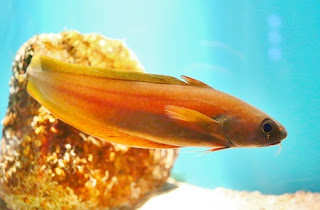

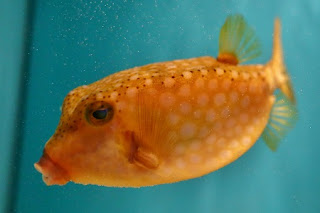


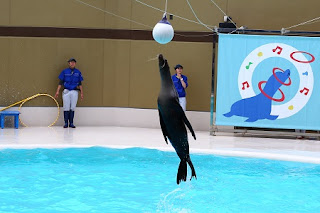
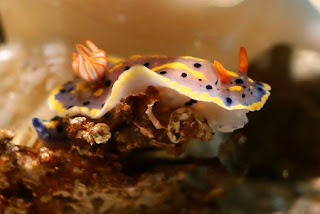




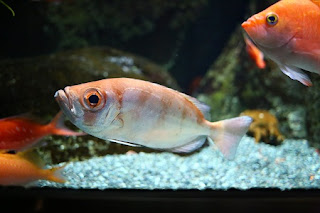



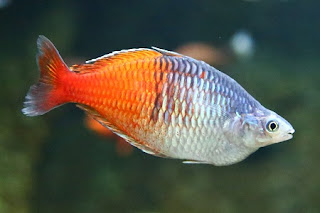



0 件のコメント:
コメントを投稿